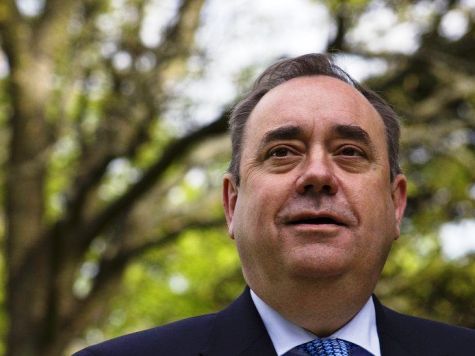This week Scotland voted “No Thanks” to independence, choosing in record numbers to remain part of the United Kingdom. After a two and a half year campaign and a last-minute leap in the polls, Salmond and his party just missed the mark, losing to the Better Together campaign 55 percent to 45 percent.
This was undoubtedly a larger margin than expected, certainly far greater than the nationalists wanted, but an impressive result none the less. And yet, in a shocking and entirely unexpected move, Alex Salmond chose the very next day to resign from his role as leader of the SNP and first minster of Scotland.
The question is, why on earth has Salmond chosen to go now? His decision goes against everything he’s said before, for historically the Scottish leader has remained adamant in his commitment to stick in his position until 2016 regardless of the result. He has just headed a brave campaign and came so close to realising his life-long dream.
Despite being a polarising figure, even Salmond’s detractors have refrained from piling in to criticise the SNP leader or blame him for the nationalists’ loss. There is no doubt that Salmond, and the referendum he can take much of the credit for bringing about, has changed British politics forever; he made devolution the single biggest issue in Scotland, he roused and invigorated the electorate, leading to a record turnout for Thursday’s vote.
The result itself was a tremendous achievement; yes, Salmond was smoked, but tremendous new powers have been promised by Westminster over issues including tax, spending and welfare, an outcome reminiscent of the “Devo Max” that Salmond originally favoured over all-out Braveheart-style freedom from the union.
He is rightly “immensely proud” of his Yes campaign; so why does he think that, now of all times, new leadership would benefit his party?
Chances are Salmond is exhausted, tired, knackered by the campaign and in desperate need of a break. He has done his time, over twenty years, at the front of the nationalist campaign. But it seems strange and out of character for the ebullient leader to throw in the towel after coming so close and before the power transfer deal is hammered out. A possible reason could be Cameron’s response to the No vote.
Shortly after the figures came through, Cameron surely added insult to injury for many North-of-the-border socialists with talk of new laws favouring the English to ensure a “fair and balanced settlement” for the English as well as the Scots. Rather than keeping on message and promoting unity by praising the survival of the union he made a concerted effort to pacify his own ranks.
This could be seen as a desperate bid to mollify his own backbenchers, incensed by promises of further powers for the Scottish parliament if Scottish voters said “No” to independence. This serious transfer of legislative control has not yet been debated and was certainly not part of the Conservative Party 2010 manifest; the promise was little but back of a fag packet politics designed to bribe wavering Scottish voters at the final hour, a really quite nasty business.
Understandably, backbench Tory MPs were less than overjoyed at the news that Scotland will receive even more money once it is given even greater powers. The Barnett formula already hands Scotland an unfair wad of British cash, much of it straight out of the pockets of South-East England Tory-voting taxpayers, costing England around £4.5 billion per year. Clearly angling for disgruntled Conservative and potential or current UKIP voters, Cameron appeared to propose the forging of a long overdue answer to the West Lothian Question from the ashes of Salmond’s dreams.
Unlike the Scottish power transfer, the form that these new English controls will take is up for debate; if it happens at all, we could see English only days in parliament, English grand committees or perhaps the WLQ resolved by only allowing English MPs to vote on the issues in England relating to areas that have been devolved to Scotland.
Scottish nationalists will understandably be incensed; this was not part of the deal and if Cameron does the unthinkable and follows through with a sound policy it will lessen the powers of Scottish MPs. That “effing Tory” has through one clever speech energized the Right, wrong-footed Farage and taken the spot light off of Salmond.
Perhaps, Alex Salmond chose yesterday to resign in order to take back that media attention and detract from Cameron’s speech. With the IndyRef over, Salmond is a fish out of water; his raison d’etre is gone and he passes the baton almost certainly to Nicola Sturgeon, tipping the scales of Scottish politics to an inclusion manager’s wet dream: three women will lead their parties into the next election.
I can’t help but think that Salmond will come to regret his decision. He is not one for standing at the side-lines and Scotland has a huge fight on its hands now to ensure that Westminster makes good on its promises of further devolution.
I sincerely doubt that Scotland will get the full powers she was promised, or that Cameron will ever be so sound as to resolve the current unfairness in British politics that so deeply favours Scotland over England. However, this is what happens when policy is made on the hoof. It sparks resentment from within the ranks then reaction from outside and nobody wins, least of all the electorate.

COMMENTS
Please let us know if you're having issues with commenting.